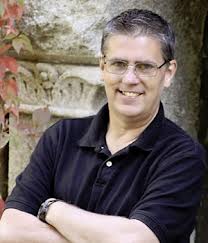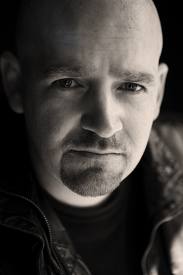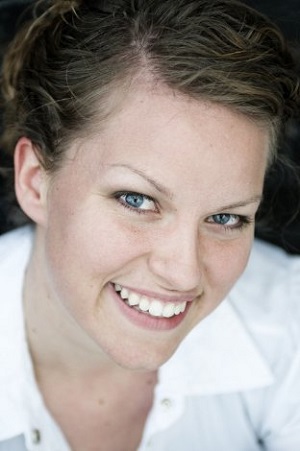I don’t read horror novels. I don’t watch horror movies. I don’t go to spook alleys or haunted houses. Want to know why? Because I’m chicken. That’s right-I’m a big, yellow chicken. I jump at noises even when I know what made them and I get the willies from fake spiders even when I know they’re fake. That’s just how I am. But I know this about myself and I’m all right with making my chicken-ness public.
Many LDS readers shy away from reading horror novels because they feel that the horror genre taps into the powers of the supernatural. They worry that by reading these novels, they will invite a spirit of darkness into their homes. In truth, this is a real concern, and we have been counseled by our leaders to avoid certain types of media. If you do a search for “media” on lds.org, this is the first statement that pops up:
“Whatever media we read, watch, or listen to has an effect on us. Church members are counseled to choose only entertainment and media that are uplifting. Wholesome entertainment promotes good thoughts and righteous choices and allows participants to enjoy themselves without losing the Spirit of the Lord.” https://www.lds.org/topics/media?lang=eng
On the other hand, some of today’s best horror is being written by LDS authors. And you know what-they aren’t freaky. They’re actually some of the best people I know. This seemed a bit of a disconnect to me-active, faithful Latter-day Saints writing stuff that would send me shivering under my bedcovers? How could that be?
In an effort to better understand, I decided to be brazen and ask some hard questions of three horror novelists who are also my friends-Jeffrey S. Savage, Michaelbrent Collings, and Andrea Pearson. They were very open with me about their feelings regarding the horror genre and the LDS viewpoint.
I asked Jeff Savage, author of Dark Memories, “A lot of Mormons equate horror novels with inviting the evil one. What is your response to this?”
 Jeff replied, “I think this is a bit like saying romance novels invite people to be unfaithful, or that mystery novels encourage people to kill. Horror is a genre, just like mystery, romance, thriller, and doctrinal. And like those genres, there are uplifting stories and there are stories that invite a different spirit. The thing about most other genres is that evil is usually limited to a serial killer, a kidnapper, a bad boyfriend, etc. In horror, evil can take many more shapes. Again, this can be a bad thing if it invites the wrong spirit, but it can also be a hugely uplifting thing. In a mystery novel, I can have a bad guy killing people, but my good guy is limited to a detective, a police officer, or a hero of some sort. In horror, the side of good can actually be the power of God because it’s one of the few genres where evil and good are present in their most pure forms.”
Jeff replied, “I think this is a bit like saying romance novels invite people to be unfaithful, or that mystery novels encourage people to kill. Horror is a genre, just like mystery, romance, thriller, and doctrinal. And like those genres, there are uplifting stories and there are stories that invite a different spirit. The thing about most other genres is that evil is usually limited to a serial killer, a kidnapper, a bad boyfriend, etc. In horror, evil can take many more shapes. Again, this can be a bad thing if it invites the wrong spirit, but it can also be a hugely uplifting thing. In a mystery novel, I can have a bad guy killing people, but my good guy is limited to a detective, a police officer, or a hero of some sort. In horror, the side of good can actually be the power of God because it’s one of the few genres where evil and good are present in their most pure forms.”
I know that the fantasy genre is so popular with LDS readers because it’s a fictionalized depiction of the ultimate battle between good and evil, but I’d never thought about horror showing those powers in “their pure forms,” as Jeff put it. I mentioned this to him, and he replied, “In horror, we get to see wonderful stories where good triumphs over evil. While there are stories that end with darkness and bitterness, most horror stories are redemptive. We see light triumph over darkness, good struggle against evil and win. We learn that while there are bad things out there that are very strong, good can triumph over them. The world is filled with monsters, and most of them walk on two legs. But when we turn those monsters into ghosts, or vampires, or demons, or whatever we want, we are still teaching the message that they can be defeated by honor, virtue, and love.”
Looking at it through that lens, then, is that the goal of the horror genre? What is the goal, and how does the author know when it’s been reached? Jeff replied, “I think that the primary goal of any novel should be to entertain the reader. If an author fails to do that, nothing else matters. Second, a novel can teach, inspire, educate, or pose questions the reader must answer for themselves. I don’t think horror is any different in that way. In anything I write, I want to pull you in with a great story and finish by giving you something to ponder after the pages have been closed.”
That sounds insightful and remarkably uncreepy.
I next posed the question, “What made horror, as a genre, appeal to you as something you would like to write?”


Jeff said, “(Horror is) the freedom to present good and evil in their purest forms.
As Mormons, we believe that we are in a daily struggle between God and Satan. Ultimately God will win, but not until Satan has done a lot of damage. We also believe that everyone must choose which side they are on. There is no fence straddling allowed. Those are the kinds of stories I can tell in a horror novel without coming across as preachy.”
Andrea Pearson, author of the Katon University series, added her thoughts: “I write soft horror that is heavily influenced by early horror works written by authors of the late 1800s and early 1900s.I say soft’ because I don’t enjoy slasher/gore type horror, but more the psychological, somewhat creepy things. There are elements of horror in nearly every popular series: Twilight, Hunger Games, Percy Jackson, Harry Potter. I really like those elements and have incorporated them, especially the fantasy/adventure elements, into my own Kilenya and Katon University series’.


I decided to turn my attention on Jeff for a moment. I asked him, “As the author of Dark Memories, the first horror novel published by an LDS house, you have a unique perspective on how horror novels have been received, or not received, in this industry. Can you tell us a bit about how you came to be published in this market and the hurdles you had to jump through?”
Jeff answered, “Well, the biggest thing about writing and publishing horror for an LDS audience is the preconceived notion that horror is bad.’ To a lot of people, horror stands for profanity, gratuitous violence, R-rated movies, blood, gore, and sex. I think a big part of that is because the easiest way to write a horror novel is with chainsaw-wielding, mask-wearing serial killers. But that’s only one kind of horror novel. Dean Koontz is a great example of a national horror writer who doesn’t use profanity, sex, or gore.
“For all the reasons I stated earlier, many LDS people love horror novels. But they’d like to be able to read clean horror, the same way they can read clean mysteries and clean romance. I was very fortunate to have an LDS publisher who read my story and realized it was redemptive and clean while still being scary. Horror is not for all readers. I’ve had people give my horror novel low ratings because it was too scary. I’m fine with that, the same way I am with people who don’t like other genres. But I’ve also had many people contact me to say how much they liked my book and how much they appreciated a scary read that was clean.”
I asked Andrea to share her thoughts on writing horror as a member of the LDS Church. She said, “I have a mixed view on horror as an LDS person. I really dislike movies and books that use fear to motivate and entertain. To me, fear is the opposite of faith. If fear is the motivator, the Spirit can’t be present. Therefore, I avoid a lot of the more popular authors and movies who only focus on fear, gore, etc. I appreciate a well-written story that does use psychological fear without focusing on it, and that has a positive feel at the end. Many of my readers appreciate this about my books. And it’s another reason why I won’t ever kill off my main characters.”
Hmm … that might be a little bit of a spoiler, but still, good to know.
I next asked these authors, “Has anyone ever questioned your testimony or belief systems because of the horror novels you’ve written?”
Jeff said, “No. I’ve had people who didn’t want to read Dark Memories because they didn’t want to be scared. But anyone who reads the whole book knows that it’s actually a story about a man who believes he will never see his dead wife again learning to believe in an afterlife. If anything, it’s an affirmation of my testimony.”
Michaelbrent added, “There is horror’ that is puerile and obscene, existing only for purposes of titillating and stimulating discomfort. But then, the same could be said of any genre: there are many examples of any genre that serve only to pull the mind into the gutter. On the other hand, when was the last time the plot of a romance novel hinged on someone being saved by an angelic warrior? Or when in sci-fi do you see prophets-legitimate, non-crazy ones-who extend their hands and give wisdom that will someday show the path to salvation for the book’s characters?
“Not often.
“And the responses from LDS people have been uniformly wonderful. I’m sure there are some people who have asked, Why does he write that awful stuff?’ but never to my face. People who know me and know the value that the gospel holds in my life understand how much I love the Lord, and I suspect they assume that if I’m writing a horror novel, that must be an all-right activity. There are lots of LDS members who love horror, as well-my current bishop found out what I do and immediately asked if we could go see a scary movie sometime since his wife didn’t like them.
I gave him one of my books, he read it in less than two days, and then his wife called to gripe me out. Not because the content was objectionable, but because the book had given him nightmares and she ended up staying awake because of his rolling around in bed.
“I told her sorry. And then gave him another book the next time I saw him.
“The LDS people have a very low tolerance for evil. Which is great. But they have a high tolerance for goodness, and most of them understand that to find goodness you often have to work through difficulty, and that not every story features happy-happy good times from start to finish.”
As I concluded my interviews, Jeff added, “Look, I’ve had lots of people tell me they don’t want to read horror. That’s fine. There are lots of people who don’t want to skydive or go on roller coasters. That’s absolutely their right. If you don’t want to be scared, don’t read scary books. But don’t say you don’t read horror because it’s evil or look down on people who do read horror, unless you have actually read what you are condemning. I think one of the biggest mistakes a person can make is judging something they don’t know anything about.”
That statement perfectly summarizes why I wanted to write this article. Do I understand everything about the horror genre? No, because I’ve never really read it. I’ve been too chicken. Am I now going to dash out and buy horror novels? Most likely not-chicken-ness doesn’t go away overnight. But I’m glad that I took the time to talk to these three authors and learn more about a topic I hadn’t thoroughly understood before. The strong sense I got as I conducted these interviews is that not everything is as black and white as we tend to make it. Horror can be a useful tool in demonstrating and teaching the power of good over evil and can help readers understand that light will always triumph over darkness. However, the caution still remains that this is not the goal of every horror novel on the market, and consumers should exercise their best judgment as they choose their reading material. This type of caution is valid for every form of media, not just the selection of books.
“Seek ye out of the best books,” we are told in Doctrine and Covenants 88:118. What better advice can we receive than from the Lord?
***
To learn more about the authors featured in today’s article, visit Jeffrey S. Savage at his website jscottsavage.blogspot.com, Michaelbrent Collings at his website, and Andrea Pearson at her website . My thanks for their participation.


















MjdAugust 14, 2013
I really enjoyed Dark Memories- very creepy! Tristi- Have you read Steven Peck's A Short Stay in Hell? This is a very Mormon existential horror novel written by a BYU professor. I highly recommend it! It shows the capability of the genre well beyond the visceral.
BethAugust 13, 2013
WOW!! I'll be reading a few of these authors just to help me overcome MY Chicken-ness. I'm with you on the not wanting be to scared or offend the spirit. Glad to see the other side of this. I know God wants us to be learned. He wants us to be prepared and ready to fight his battles. These insights have truly helped me and I WILL be picking up these books to read! Thank you!!